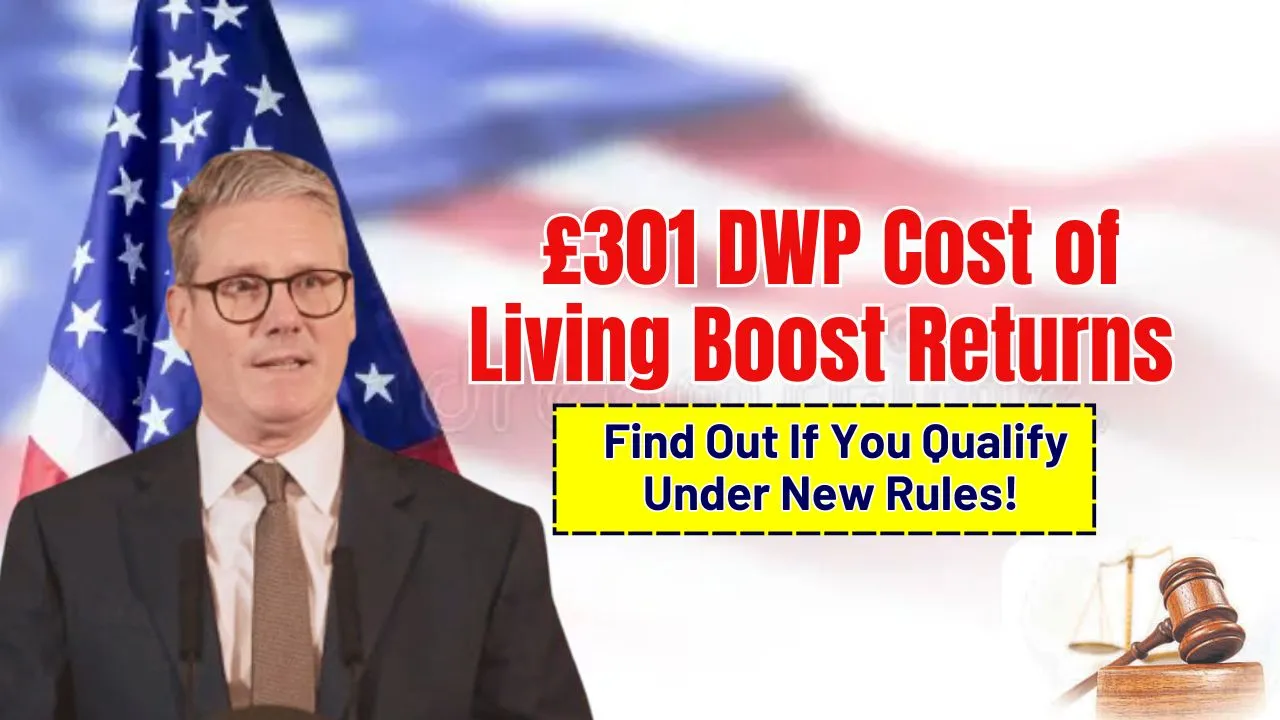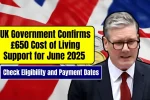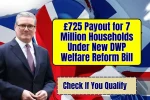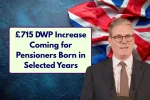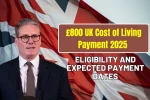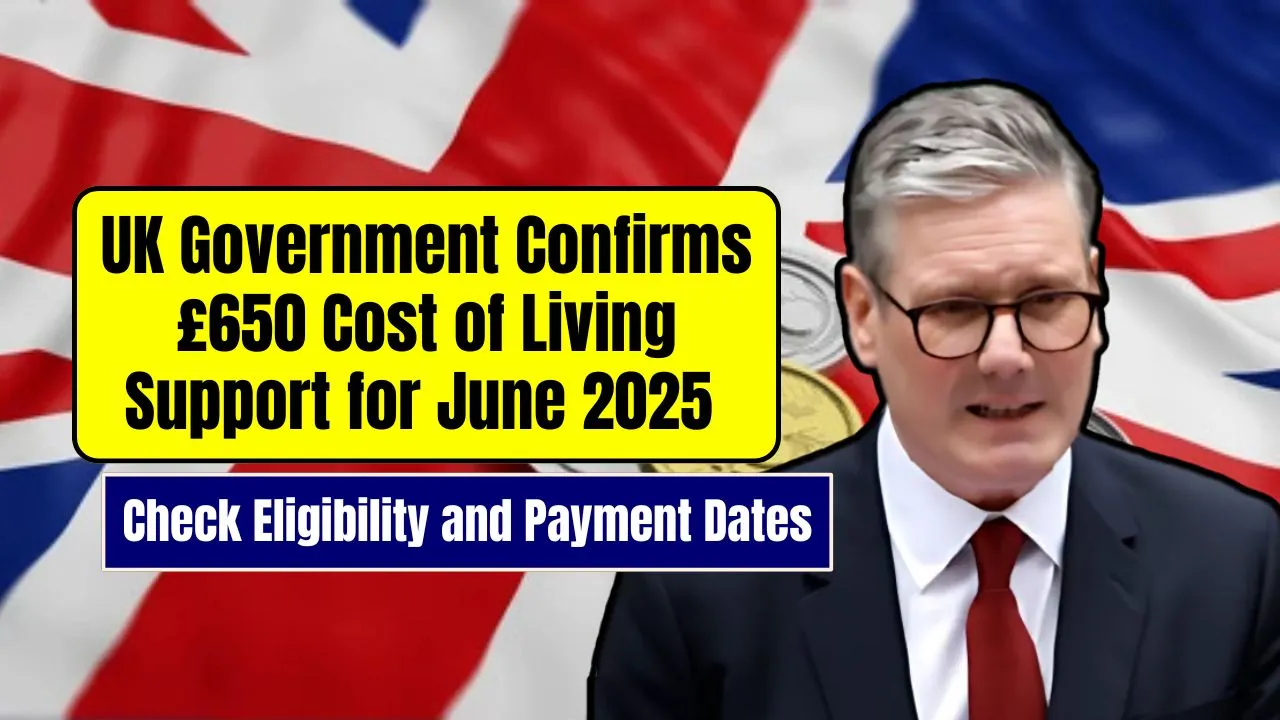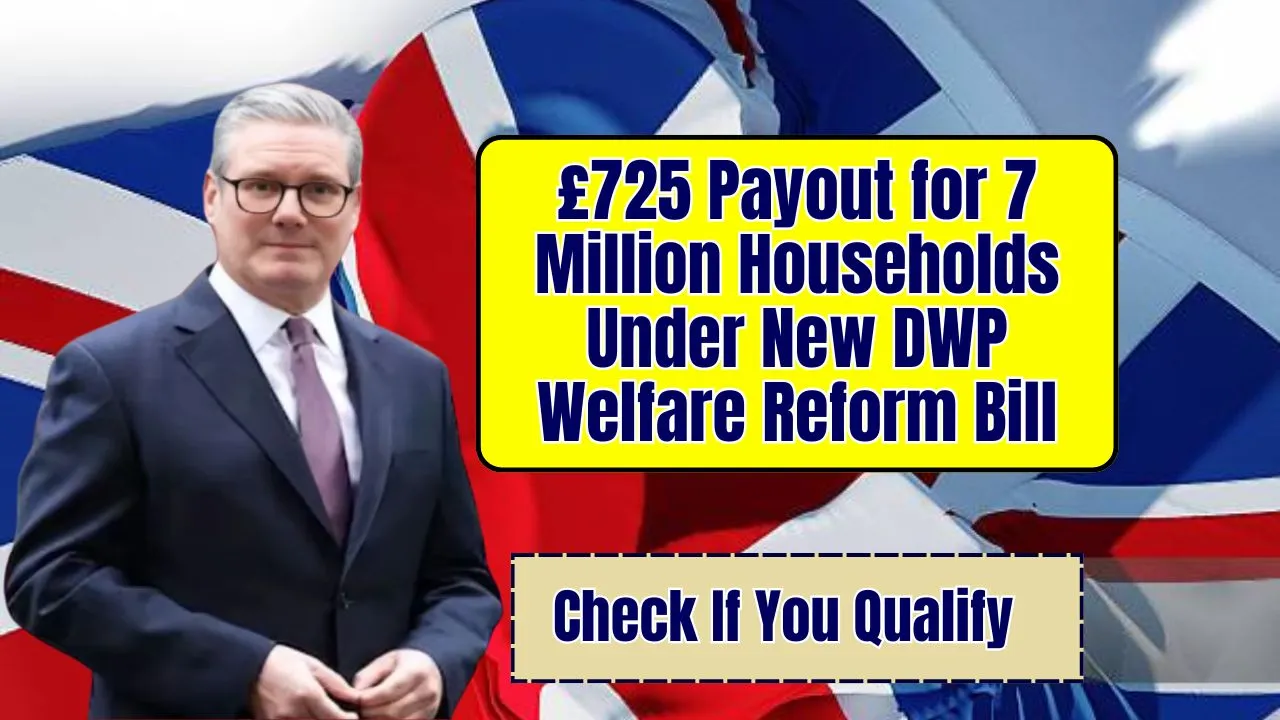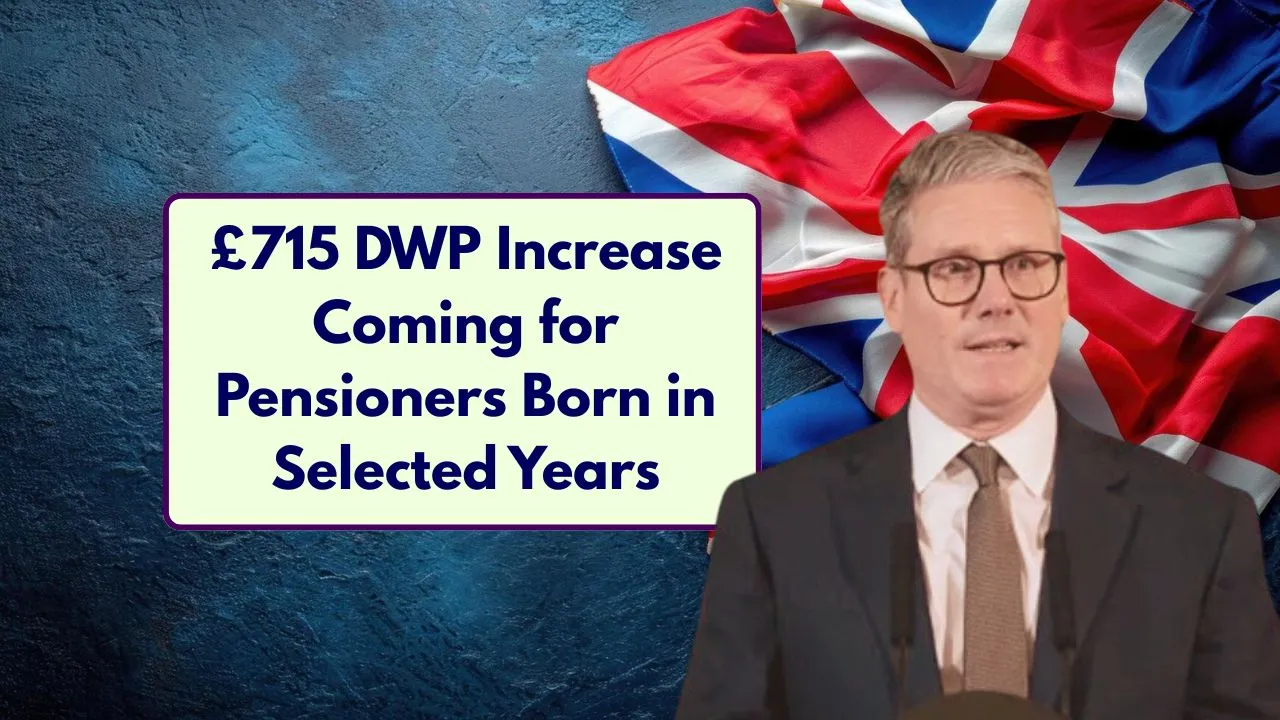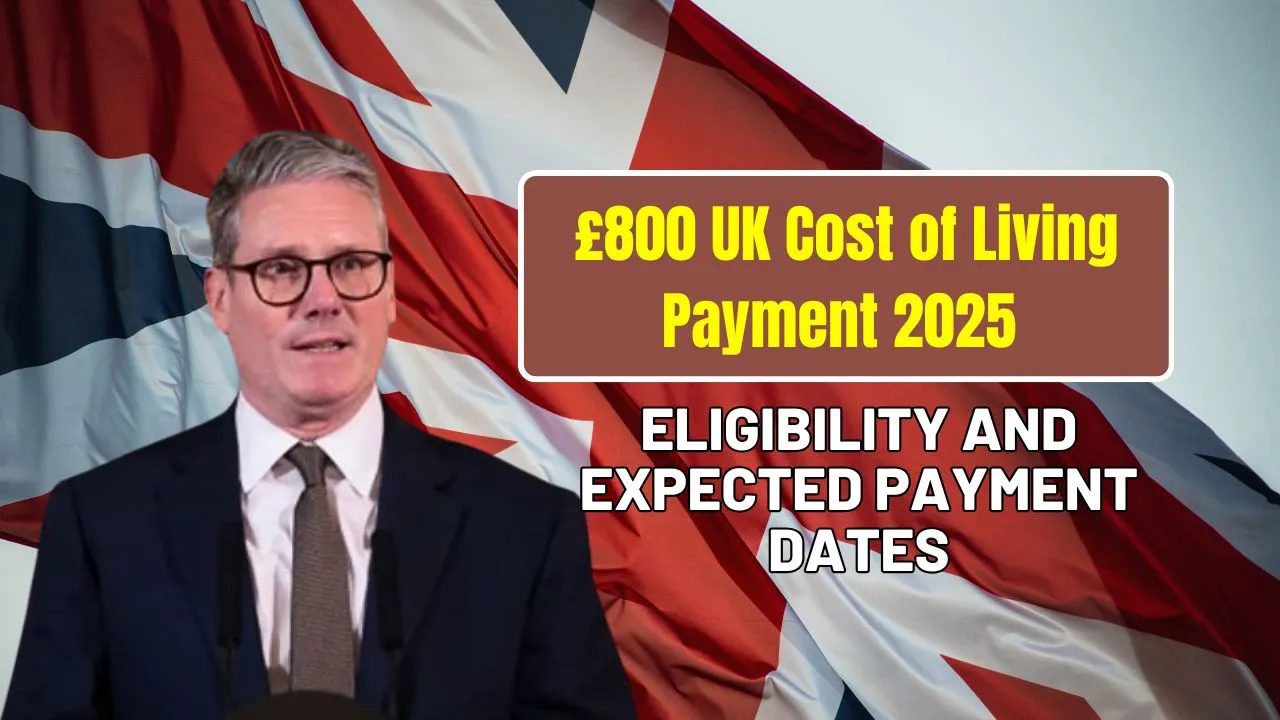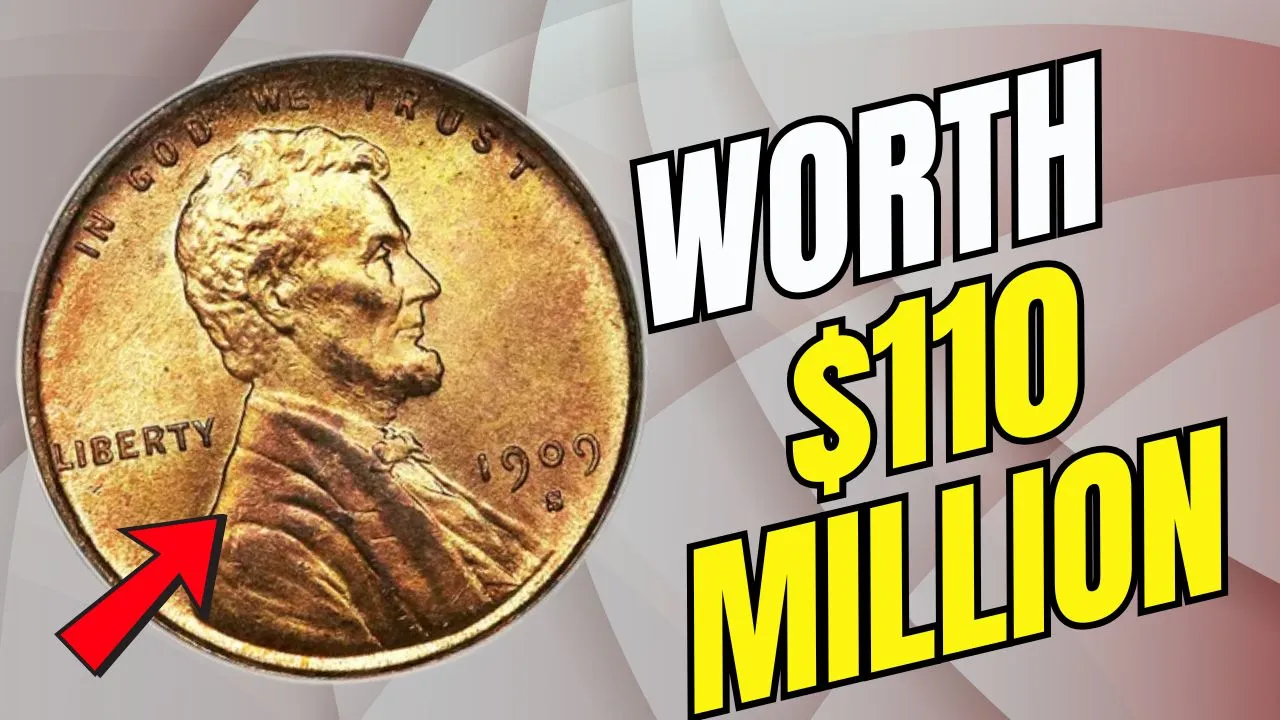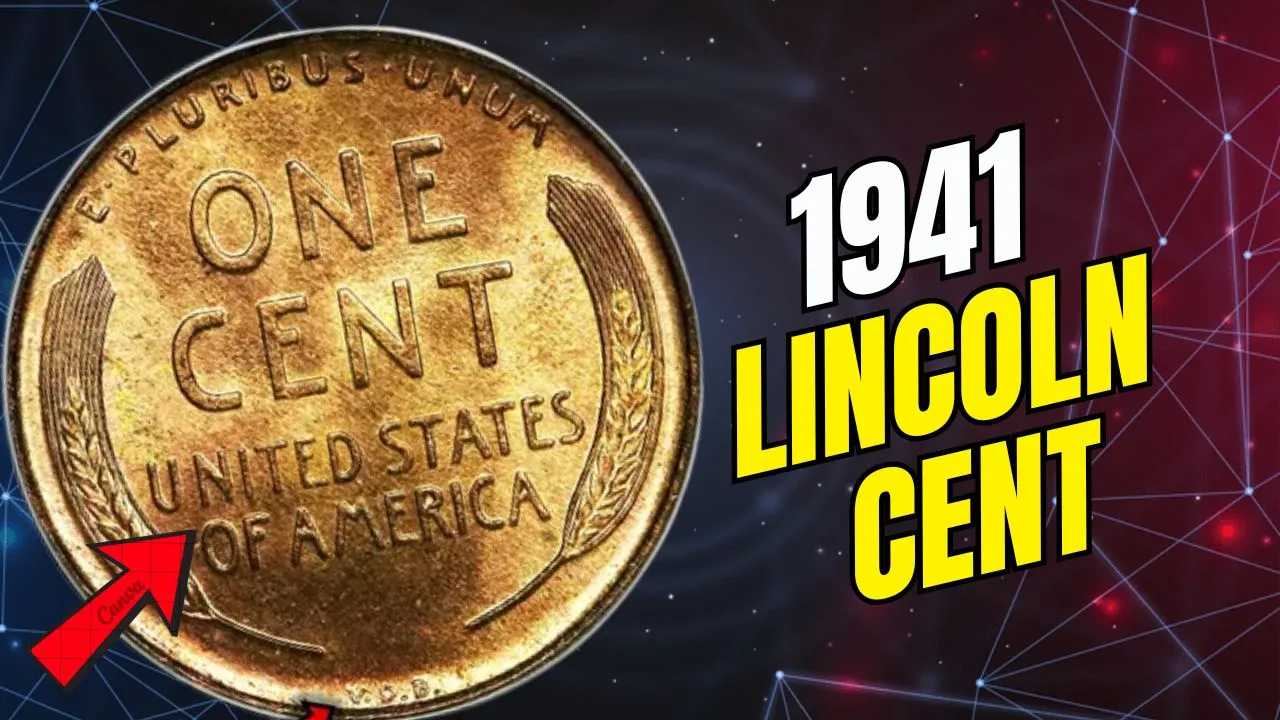£301 DWP cost of living boost: In the face of soaring living expenses, this year’s £301 DWP cost of living boost provides a much-needed lifeline for many low-income households across the UK. Spread over three payments, this targeted support aims to ease the burden of essential bills, from groceries to energy, and is specifically designed to help those most affected by inflation. Understanding who qualifies and how the system works under the new rules could make a huge difference to those struggling to make ends meet.
What Is the £301 Cost of Living Payment?
The £301 cost of living boost is a targeted financial support program tailored to help low-income households manage the rising cost of essentials. Instead of a one-off payout, the funds are split into three rounds of £301 to ensure ongoing assistance across the year. Totaling £903 annually, this approach aids budgeting and eases monthly pressure on household finances.
The DWP cost of living boost for 2025 introduces streamlined measures to ensure more immediate and reliable support. With three installments of £301, the payment totals £903 spread throughout the year. Crucially, it’s automatic—meaning eligible individuals on specific benefits won’t need to apply. This redesign offers clarity, consistency, and direct relief at key moments when bills hit hardest.
Overview Table
| Feature | Details |
| Total Payment | £903 annually (3 × £301) |
| Payment Windows | April–June, August–September, November–December 2025 |
| Qualifying Benefits | Universal Credit (non-zero), Pension Credit, Income-based ESA/JSA, Income Support, Tax Credits |
| Excluded Benefits | Contribution-based JSA/ESA, zero UC awards, post-eligibility claims |
| Payment Method | Automatic—deposited as “DWP COL” or “HMRC COL” |
| New Features | Tighter eligibility periods, auto-enrollment, fraud reduction tactics |
| If Unreceived | Check benefit status, update bank info, wait two weeks, contact DWP/HMRC |
Who Qualifies for the 2025 Boost?
To receive the DWP cost of living boost, you must be claiming one of the following means-tested benefits during the defined eligibility period:
- Universal Credit with a positive award
- Pension Credit
- Income-based Jobseeker’s Allowance or Employment and Support Allowance
- Income Support
- Working Tax Credit or Child Tax Credit
Bear in mind that receiving only contribution-based JSA or ESA, having started your claim outside the eligibility window, or having a zero Universal Credit award automatically excludes you from the boost.
When You’ll Get Paid
Money comes in three rounds:
- First payment: April–June 2025 – £301
- Second payment: August–September 2025 – £301
- Final payment: November–December 2025 – £301
Each payment is made directly into your bank account, with transaction descriptions like “DWP COL” or “HMRC COL.” This round-the-year scheduling ensures that support arrives right when financial pressure peaks.
What’s New This Year?
Key changes to the DWP cost of living boost include:
- Targeted eligibility windows—offering clearer timelines to qualify without confusion.
- Automatic payments—no forms or applications needed once eligibility is confirmed.
- Consistent support—three separate payments help ease budgeting pressures throughout the year.
- Fraud prevention—shortened eligibility windows and better tracking reduce misuse.
Together, these improvements aim to make support more predictable, timely, and effective.
Who Might Miss Out?
Despite the boost’s broad reach, many may mistakenly think they qualify. You won’t get the payment if:
- Your Universal Credit award is zero due to earnings or deductions
- You receive only contribution-based JSA or ESA
- You began your benefit after the eligibility window
- Your bank details are inaccurate in DWP or HMRC records
If you think you fall into one of these categories yet haven’t received payment, double-check your details or contact the helplines for assistance.
What to Do If You Don’t Receive It
If you’re missing your £301 boost, here’s what to do:
- Confirm you were receiving a qualifying benefit during the payment window.
- Check your bank account details with DWP or HMRC to ensure accuracy.
- Allow up to two weeks after the end of a payment window before raising concerns.
- Use the DWP or HMRC contact options to report the issue once the wait time has passed.
Why £301 May Change Things
Although £301 might seem modest, it adds up to a meaningful annual amount—helping cover:
- Monthly gas and electricity bills
- Food essentials and groceries
- Rental or mortgage contributions
- Fuel for work or school commutes
By distributing it over three payments, the program supports households consistently during periods when spending peaks.
Other Cost-of-Living Help Available
In addition to the £301 DWP cost of living boost, you may be eligible for other financial supports:
- Pensioner Cost of Living Payment — £300 for people over 66
- Disability Cost of Living Payment — £150 targeted at those with specific disability benefits
- Local Council Hardship Funds — varies by area, may offer emergency grants
Combining these sources of aid can greatly relieve financial strain for eligible individuals.
Practical Take-Home Advice
Here’s how to make sure you don’t miss out:
- Verify your benefit status to ensure you’re enrolled in a qualifying support program.
- Keep your payment details updated with DWP and HMRC.
- Monitor the payment windows and check your account after each.
- Reach out early if there’s an issue—within two weeks after the window ends.
- Explore additional support, like pensioner or disability payments.
These steps put you in control and ensure that all the support you’re entitled to reaches you.
Final Thoughts & Call to Action
The DWP cost of living boost offers a powerful, practical way to soften the impact of today’s economic pressures. Spread across the year, it helps households manage recurring expenses without overwhelming debt.
Take these actions now:
- Check your eligibility based on the qualifying benefits list.
- Update your bank details with DWP or HMRC to ensure smooth payment.
- Mark your calendar for the three payment periods.
- If a payment is missing, contact authorities after two weeks.
- Look into pensioner, disability, or local relief schemes for more support.
If this article helped clarify the new rules—or helped you claim the boost—please share it with a friend or family member. And if you have questions, add a comment or get in touch. We’re here to help you make the most of the support available!
